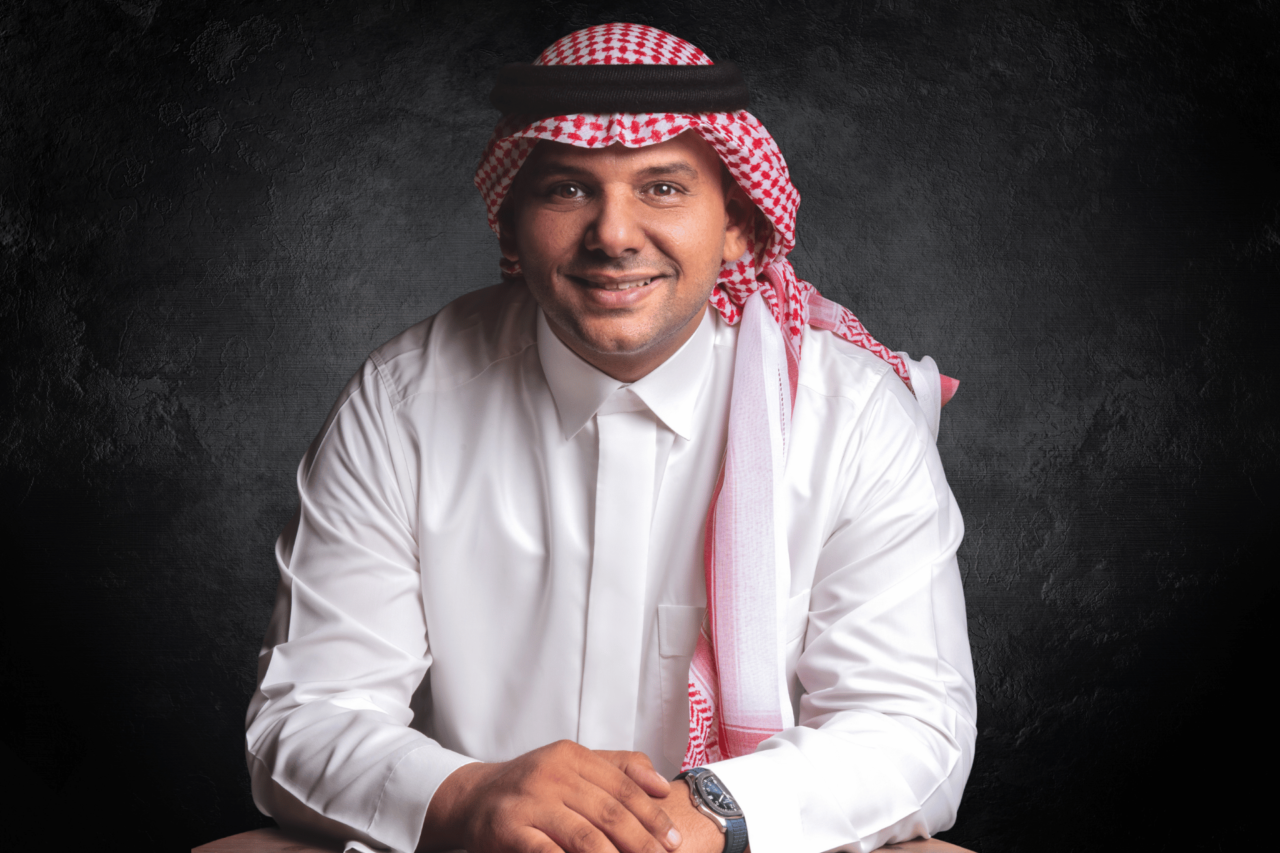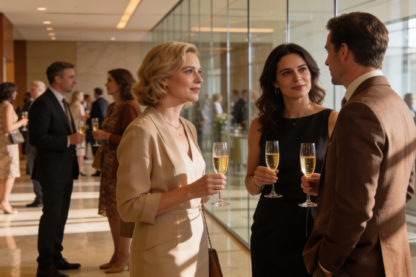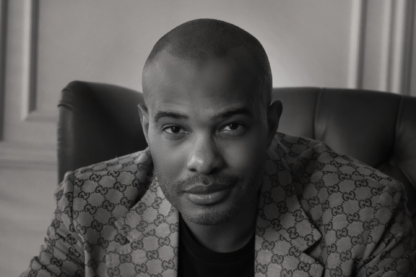Luxury dining is more than just exquisite cuisine—it’s an art form, a carefully curated experience that engages all the senses. Few understand this better than Ahmed Alajmi, the driving force behind Takara Hospitality Group. In this exclusive conversation, Alexander Chetchikov, president of the World Luxury Chamber of Commerce, sits down with Alajmi to explore his journey from a passionate food enthusiast to a leader in Saudi Arabia’s thriving fine dining scene.
From overcoming industry challenges to shaping the future of luxury hospitality, Alajmi shares his insights, inspirations, and what’s next for Takara Hospitality Group.

Alexander Chetchikov: Can you share the story of how you first entered the luxury hospitality industry and what inspired you to create Takara Hospitality Group?
Ahmed Alajmi: My primary interest lies in food. As Saudi nationals, we can be quite particular about our culinary preferences. I grew increasingly frustrated with the lack of dining options beyond Arabic cuisine in the Eastern Region of the Kingdom of Saudi Arabia. It was puzzling to see that every restaurant that ventured beyond Arabic cuisine seemed to open and then quickly fail.
Interestingly, Bahrain, just a 30-minute drive away, embraced diverse food options and welcomed various types of cuisine without prejudice. This contrast led me to discover the concept of “terroir” — the idea that food tastes different depending on its origin. I realized that there is no such thing as “educating the palate” to make someone appreciate flavors that are unfamiliar to them.
In 2019, we launched TAKARA with a clear mission: to provide our clients with authentic Japanese cuisine while incorporating Arabic ingredients they enjoy. The response was overwhelmingly positive from day one; we were packed immediately. Following that success, we introduced Sold Out and Ziba, and the return on investment was almost from the third month of opening in both scenarios.
AC: Your journey from launching Takara to expanding with Sold Out and Ziba has been remarkable. What key challenges did you face, and how did you overcome them?
AA: Let us not refer to them as “challenges”; instead, let us consider them “part of the learning curve.”
Sold Out opened as a marketing initiative aimed at catering to the young Saudi generation, who tend to prioritize fashion and sensory experiences over the food itself. However, as a restaurant, we needed to align the food with their expectations. Sold Out is not a budget-friendly option; if we were to be placed on a pricing chart, we would rank among the top burger chains in the Kingdom. The difference with Sold Out is that we deliver on our promise – providing a quality experience.
Ziba was a significant risk, being the first Persian cuisine restaurant in the Kingdom of Saudi Arabia. Our focus is on what Persia represents for the region – culture. We created a museum and placed the restaurant among it. Did you know that at Ziba, you could find pieces that are over 300 years old? Ziba is about enjoying authentic Persian cuisine in one of the most exclusive developments in the Eastern Region – Shorofat Park. Imagine savoring traditional 72 hours of slow-cooked Lamb with Persian Pulao and Sumac while overlooking a stunning fountain illuminated with colorful LED lights, with a gentle breeze on your face. That is the essence of Ziba.

AC: You’ve been recognized with multiple prestigious awards in the hospitality industry. What do these honors mean to you, and how do they reflect your vision for luxury dining?
AA: Accolades reflect well-done work, but they provide opportunities for even greater accomplishments. However, they also bring significant responsibilities, as one must outperform the previous year to demonstrate that the recognition was deserved.
What brings me the most joy is the increasing global recognition of the Saudi hospitality industry. In the past, the focus was primarily on Europe, and it seemed that Dubai was the only significant destination in the Middle East.
Luxury hospitality in the Kingdom of Saudi Arabia has become a reality. Three years ago, we had only 5 venues on the 50 Best Discovery List; this year, we already have 26.
Companies such as THG, Leylaty, MFC, MJS, Al Khozama, and Cool Inc. are leading the way in luxury dining within the Kingdom.
AC: As a newly appointed board member of the World Luxury Chamber of Commerce, what are your main goals, and how do you see yourself contributing to the global luxury sector?
AA: In establishing luxury as an experience, it is important to first define what constitutes “luxury” and understand how to fully appreciate it.
Luxury is a privilege and should engage all of our senses. When I pay a premium for a product, it must be worth the price.
For example, in the restaurant industry 10 to 12 years ago, customers tended to focus only on the left side of the menu, where the names of the dishes and ingredients were listed. The price was often accepted based on the restaurant’s “reputation” or its location. However, with the widespread access to the internet today, it is easy for diners to know the cost of various items and compare prices across different establishments.
This is where the experience becomes crucial. At THG, we primarily focus on our “client journey.” We take pride in the fact that 99% of our customers simply ask for the bill and pay it without looking at it. This indicates that they believe the value of their luxury experience was worth the price. For the remaining 1%, we make it a priority to ensure their satisfaction on the spot. We never let a client leave feeling unsatisfied.
As board members, we must share our luxury journey knowledge; a leader who does not share their insights is akin to a child who, despite not wanting to play with a toy, refuses to let others enjoy it.

AC: Luxury hospitality is constantly evolving. What trends do you believe will shape the future of the industry, and how is Takara Hospitality Group adapting to them?
AA: We live in an age dominated by scrolling, where images define our experiences and we curate the lives we want to present. In this world, just five seconds of my attention on a post can determine whether I engage with a product or discard it entirely. The options are limitless.
In the realm of luxury hospitality, I refer to something I call “the wheel.” What is the wheel? It encompasses everything that luxury hospitality represents and includes—every kind of cuisine, type of service, business model, and decoration style. In just five seconds, how can you transform the wheel? Is it through service? Food? Pricing? No. The real secret lies in the “client journey.”
How do you entice a client with a dish? By creating cravings. Nowadays, nearly everything is available in supermarkets, and many people consider themselves chefs in their kitchens. This leads to a dilemma: should I invest money in stunning marble tables for my clients, or should I prepare for the trend where people prefer staying home and ordering in?
So, what should I do? Should I invest all my savings in opening a venue with an exquisite fine dining experience I have been contemplating, complete with a premium selection of wine to pair? The answer is YES. But rather than splurging on silver cutlery, invest in uniqueness. Find the gaps that others overlook. Ensure your service is knowledgeable yet unobtrusive. Surprise guests with thoughtful details. Incorporate regional ingredients. Avoid mimicking “the restaurant that everyone loves.” Above all, create an experience that is short yet memorable. Leave always space for your clients to come back for more.
AC: You place a strong emphasis on values like family, honesty, and respect in your business. How have these principles influenced your leadership and company culture?
AA: Looking back, it was easy to run TAKARA as a business since it was only 1, and it has been incredibly successful up to this day. However, when managing a hospitality group, it is essential to recognize that your most valuable asset is your people.
Without clear values to guide this asset, failure is inevitable.
Family, honesty, and respect are not just buzzwords at THG. You may have seen company profiles in pitches that outline their “Vision,” “Mission,” and “Values,” but then you meet the people behind the company and think, “These guys put this together using ChatGPT.”
At THG, we take those values very seriously.
I believe my management style has evolved significantly over the years. As you grow, you need to attract more skilled professionals. I always say, “If I can do someone’s job, then I do not need to hire them.” We started with a team of passionate individuals, and later we incorporated real professionals from the F&B industry.
Hiring professionals helps us clarify and establish strong principles. As our company evolves, it must grow alongside its experienced workforce. Our company culture is straightforward: join us, and we will help you become a better person first, and through the right training, a better professional afterward. If you decide to leave later on, you will do so knowing that there is always room for growth and learning with us.
We are a family that honestly respects one another.

AC: Saudi Arabia’s luxury dining scene is growing rapidly. What role do you see it playing in the global luxury hospitality market in the coming years?
AA: A year ago, Saudi Arabia had over 132,383 restaurants, cafes, and bakeries spread across its 2.15 million square kilometers—a land area five times larger than the entire GCC combined. The Kingdom showcases a vibrant food culture with diverse offerings across its provinces. Riyadh Province leads with the highest number of dining establishments, totaling over 33,399. Makkah follows closely with more than 31,872, while the Eastern Province has 21,499. In stark contrast, the Northern Borders Region has the fewest establishments at only 1,601, and the Al Bahah Region has 1,806.
In 2024, the number of restaurants in Riyadh surged by 400%, which included a remarkable 300% increase in upscale venues. Saudi Arabia’s rise as a luxury hub is noteworthy, especially with the increasing participation of women in the workforce. Additionally, the preferences of Millennial and Gen Z consumers have diversified the luxury market.
The country boasts over 250,000 products and around 1,500 companies that carry the “Saudi Made” label, including THG. Through Vision 2030, Saudi Arabia has opened its doors to tourism, leading to significant changes over the past four years, making it an exciting destination to visit. Last year, Saudi Arabia was awarded the rights to host several major events, including the 2027 Asian Cup, the 2029 Asian Winter Games, the 2030 EXPO, the 2034 Asian Games, and the 2034 World Cup.
Therefore, instead of asking, “What role do I see Saudi Arabia playing in the global luxury market?”, it would be more appropriate to ask, “What more can Saudi Arabia bring to the global luxury market?”
AC: What advice would you give to aspiring entrepreneurs looking to break into the luxury hospitality industry and build a successful brand?
AA: Sell what your clients want to buy. Live by the motto “If you like, you buy.” What is a luxury hospitality experience if it does not connect to something we crave or a “safe place” we fondly remember? Adding to that, it gives us the feeling of being on top of the world.
Restaurants like TAKARA, Sold Out, and Ziba excel at delivering authentic Saudi flavors to our clients. Every product we offer receives approval from a panel of 100% Saudi nationals who affirm, “This is what we like; therefore, we will buy it.”
Thank you, Mr. Alajmi, for your time!
Ahmed Alajmi’s story is one of passion, perseverance, and an uncompromising commitment to excellence. From pioneering unique dining concepts to shaping the Kingdom’s position on the global luxury hospitality stage, his influence continues to grow. As Saudi Arabia rapidly emerges as a premier destination for high-end experiences, Alajmi and Takara Hospitality Group stand at the forefront of this transformation. With a clear vision and a relentless pursuit of quality, the future of luxury dining in the Kingdom has never looked more promising.
To learn more about Takara Hospitality Group, visit https://thgsaudi.com/ & stay up to date with the latest WLCC news here: https://worldluxurychamber.com/insights-news/





